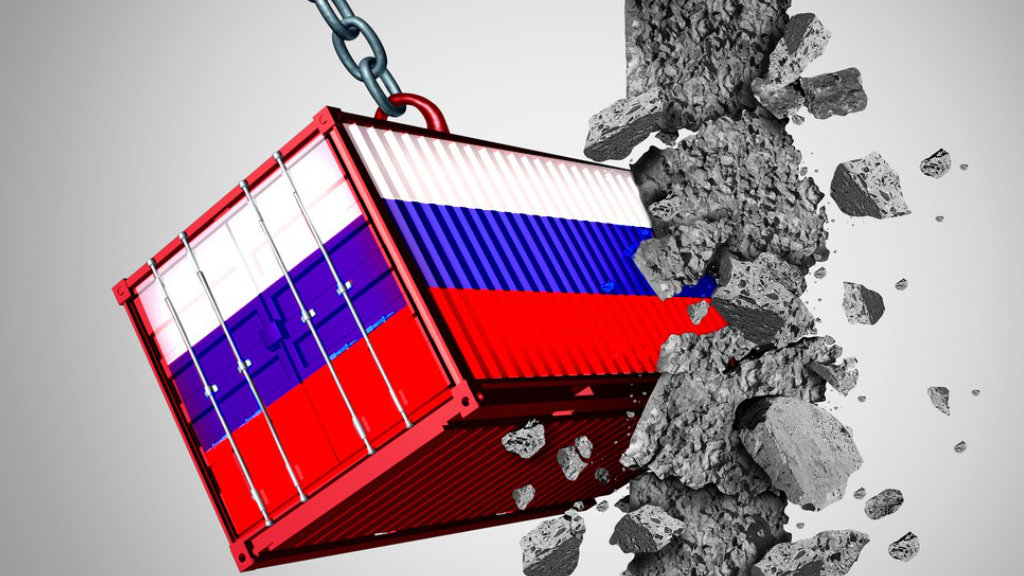New survey suggests Russian businesses are mainly bullish and sanctions are being overcome
A new report by Yakov & Partners (previously McKinsey Russia) has stated that Russian businesses have successfully adapted to operating under Western sanctions, with 50% of Russian entrepreneurs noting an improvement in their business over the past six months. Looking ahead, 87% were expecting an improvement or at least, a continuation of the current state of doing business in Russia.
The data was collected from surveys of Russian enterprises and presented by experts from Yakov and Partners. They show that for the first time since 2022, foreign trade barriers have ceased to be the main problem of Russian companies.
Although foreign trade bans and sanctions continue to influence the position of Russian companies, they are no longer the main barrier to trade. Instead, an increase in capital costs, due to high interest rates (currently 16%) were among the main risks for Russian businesses. Even more problematic however is Russia’s high employment data – a shortage of labour is pushing wages up.
However, more than half of respondents expect their company’s position to improve in the next six months. The positive outlook of business leaders on the prospects for the next six months is confirmed by the priorities identified by Russian business owners. Employee attraction and retention will remain a top development priority for business leaders in the coming months. Respondents ranked growth in the output of products and services in second place, and entry into new customer segments and diversification of the product portfolio in third and fourth place.
Elena Kuznetsova, director of the Yakov and Partners Institute and co-author of the study, said that “These results indicate the adaptation of Russian business to restrictions caused by geopolitical factors. The list of company priorities speaks about development and growth. However, the main constraint is the labour market. The share of leaders who have identified personnel issues as a priority is growing and has reached a record 43%.”
Part of the answer to the personnel question is the development of automation, including the use of artificial intelligence. 70% of Russian corporate executives believe that artificial intelligence (AI) will impact their companies over the coming twelve months, and are convinced that in the near term, artificial intelligence will primarily help reduce costs, increase revenue and increase the degree of personalisation of products.
About 150 company executives from all major sectors of the Russian economy took part in the survey, including banking, IT and telecoms, metallurgy, oil and gas and mining, retail trade and e-commerce, agriculture, chemical industry, mechanical engineering and energy, transport and logistics, medicine, pharmaceuticals. The surveys involved heads of organisations with an annual turnover of more than ₽5 billion (US$56.5 million).
Optimism prevails in all major industries, except construction where views were mixed – 30% of businesses in this sector said that the market situation had deteriorated over the past 6 months, while 33% responded that their production had improved. Another third reported that the market conditions had not changed.
In comparison: in retail trade, e-commerce and production of consumer goods, just 20% of respondents reported a deterioration in the state of their production, while 50% reported an improvement in the condition of their companies, and 30% said there had been no change.
In the mining and metals industries, 22% of respondents reported business improvement, while 28% of executives reported a deterioration in business conditions. The mining and metallurgy industry is the only sector of the Russian economy where negative assessments of changes over the last six months significantly exceed the share of positive assessments.
The best ratio of positive and negative assessments of changes over the past six months is observed in the field of financial and banking activities, as well as in the field of technology and IT. When asked, CEOs of Russian technology enterprises and IT companies did not have any negative assessments of changes over the past six months, while positive assessments of the industry reached 85%.
In Russian financial and banking activities, the share of negative assessments of changes over the past six months was just 4%, and the share of positive assessments 57%.
A shortage of skilled labour, foreign trade bans, as well as rising costs of capital are the main challenges for companies, as related by the responding CEOs. Central Bank Chairman Elvira Nabiullina has argued that her policy of continuing high rates does little to slow down economic growth. However, the Yakov and Partners data does not confirm this thesis, since the high cost of raising capital is called by entrepreneurs the third most important obstacle, comparable in negative impact to Western sanctions.
“In the fall, there were many fears that raising the key rate would put an end to the economy. But we see that this is not so,” Nabiullina said.
Economic growth slowed slightly in the fourth quarter but remained strong. At the end of the year, GDP grew by 3.6. Now operational indicators show that in the first quarter of this year the economy continues to grow at a high rate,” said Elvira Nabiullina during her report to the State Duma in April 2024.
In December 2022, only 11 CEOs cited rising costs of capital as a significant risk to their businesses. By May 2024, this had more than tripled and reached 38% of the total. To compare, just 42% of all respondents mentioned foreign trade bans or sanctions as problematic.
Continue Reading





 Русский
Русский









